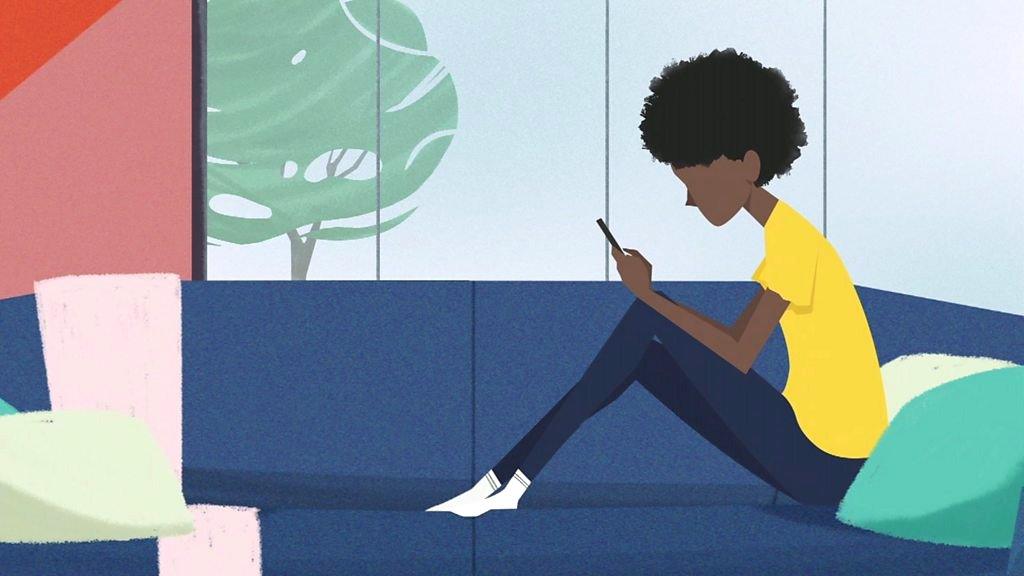Newsround presenters celebrate show turning 50
- Published
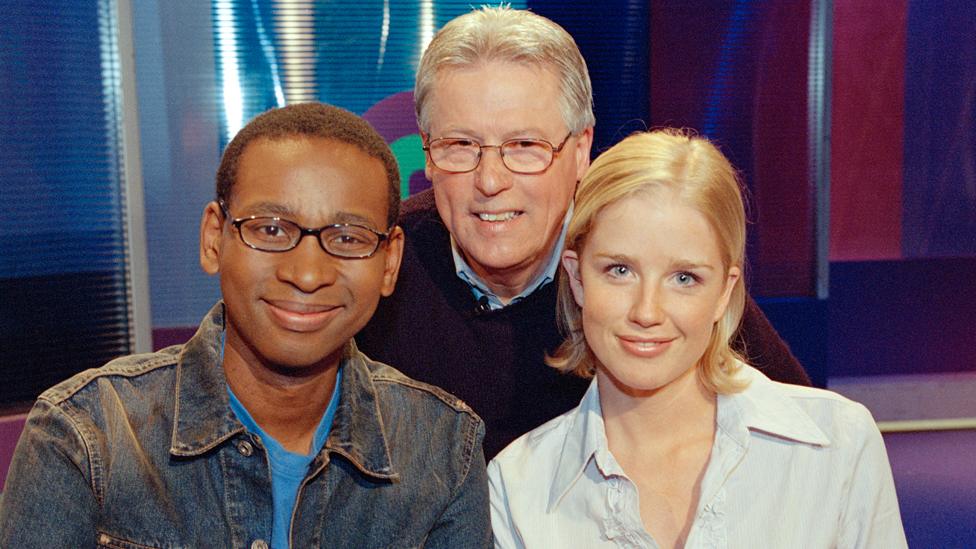
Past presenters of Newsround in 2002: Lizo Mzimba, John Craven and Becky Jago
Newsround, the world's longest running children's news programme is celebrating its 50th birthday.
The show, initially commissioned as a six-week experiment by the BBC's Children's Department, was first broadcast on 4th April 1972, and has been running ever since.
"It is such an honour for me to have started it," says John Craven, the show's first presenter. "I'm terribly proud that it's still an important part of national life."
Craven helped to develop the Newsround format that still persists today.
"We had to be dealing with serious news, news we thought the children should know about. [But also] news that we thought they wanted to know about.
"We honed in on sport, and hobbies, and school stories. Space, adventure wildlife. All these kind of areas that children were interested in we had on Newsround".
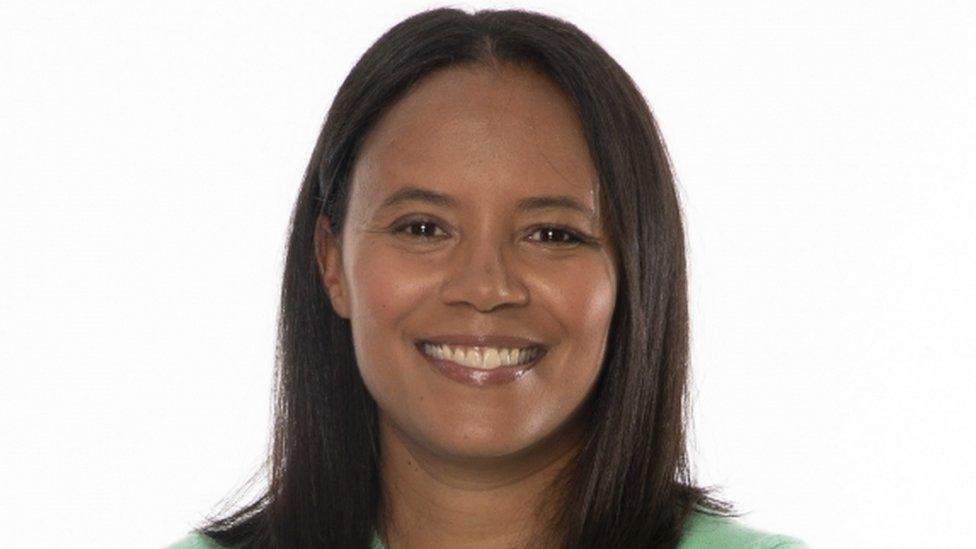
Leah Boleto says Newsround is "not patronising"
"I think it's putting kids at the hearts of stories," says Leah Boleto, who presented the programme between 2010 and 2019.
"Newsround has always been really key on knowing who they're talking to. And it's not patronising, but it takes a story, strips down any of the jargon and tells it in a sensitive way."
Her husband Ricky Boleto who's presented since 2008 (the couple met on the programme) agrees.
"I think it's the blend, the mix of stories. Newsround is so well known for having these 'and finally' stories as well, but also focusing on the big story of the day in a way that kids can understand."

The Newsround website offers a huge range of information for younger readers
In 1985, after 13 years, John Craven was joined by a team of other presenters that included the late Helen Rollason and Roger Finn.
The programme was now so well established with both its audience and with broadcasting executives, that the BBC Newsroom trusted its journalists to be able to handle news of any kind.
Finn remembers a high level conference being held in BBC News about "breaking news" protocols.
In the days before rolling news channels or the internet, the first the audience would hear of a huge story was often through a television newsflash. But what would happen if a big story broke during children's programming on BBC One?
The decision was made that Newsround could, and should be trusted to break such stories.
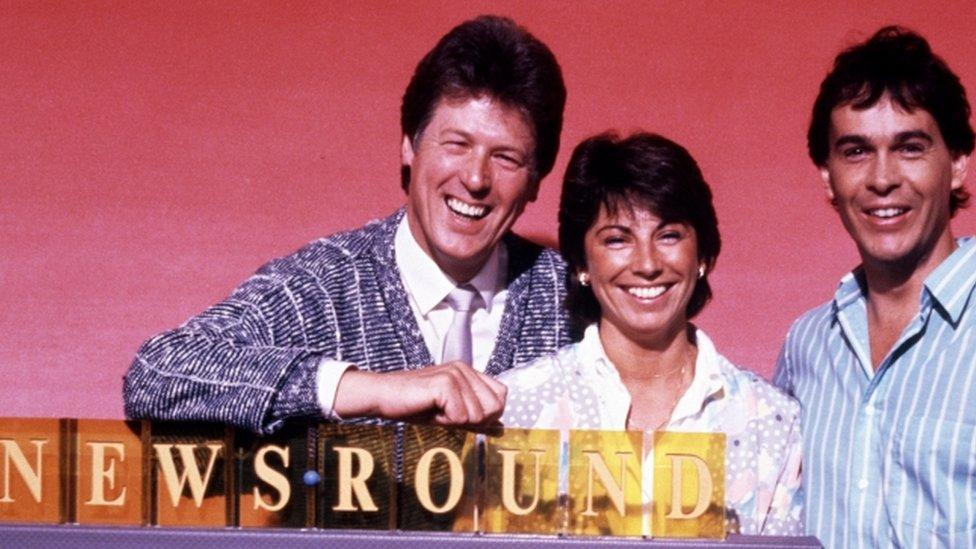
The 1985 team: John Craven, Helen Rollason and Roger Finn
Just a few weeks later on 28th January 1986, 15 minutes before Newsround was due on air, Roger Finn was sitting in the studio checking his scripts when he heard the voice of Kirsty Fish, the show's producer, in his earpiece.
The Space Shuttle Challenger had exploded shortly after take-off. Newsround was the first programme to break the news to the country - children and adults alike.
"It was a sign of respect that yes, we can trust you to do this," says Roger. "We were aware that we had to be as sensitive as possible, and we had to do this very quickly and just tell the facts and tell the story of what had happened."
Over the decades, Newsround may not have broken every big story to the viewing public, but still, at its core was explaining difficult news to its young audience in an appropriate way.
Julie Etchingham, who presented the programme in the mid to late 1990s remembers reporting from outside Buckingham Palace in the days following the death of Diana, Princess of Wales in the summer of 1997.
It was a story that prompted an outpouring of grief from people of all ages.
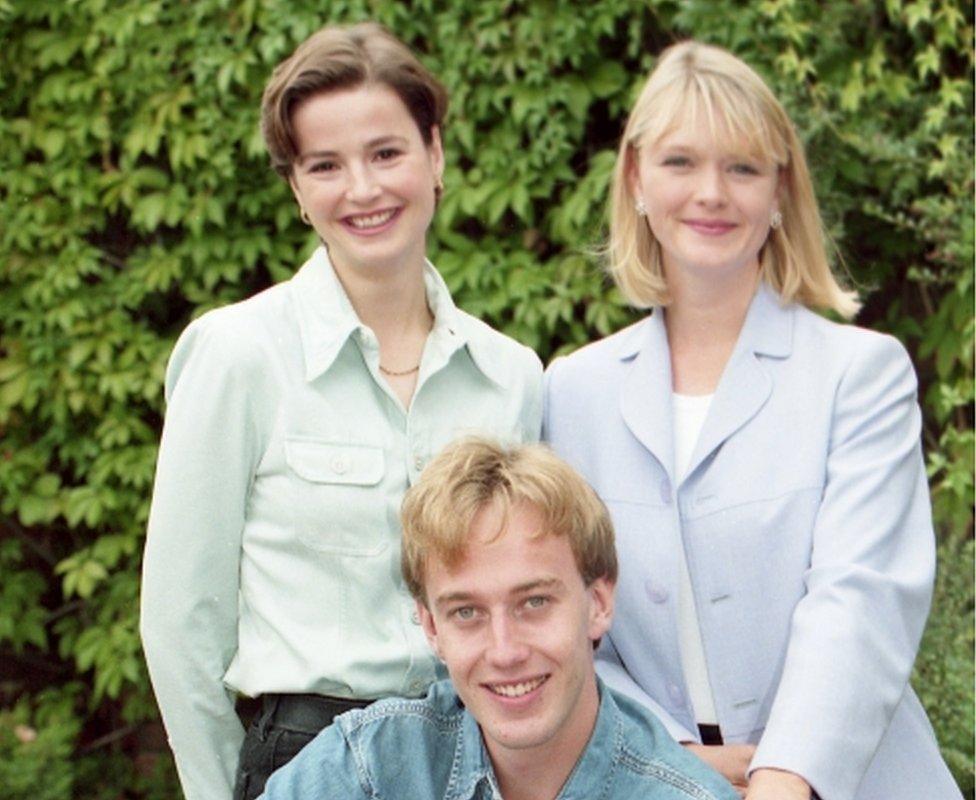
Newsround's Kate Sanderson, Julie Etchingham and Chris Rogers in 1997
"I just remember being down here amongst the crowds," she says, standing outside Buckingham Palace. "Many people remember that just here in front of the palace - it was sort of a sea of flowers.
"You had to navigate that story like any of these big, challenging upsetting stories for Newsround," she expands. "We had a guest in our studio who was a bereavement specialist and could talk about grief. And how children navigate grief.
"There's so many wonderful things about Newsround, but that is one of the greatest.
"It thinks hard about the impact on its audience. Not in just a journalistic way. But in an emotional way as well."
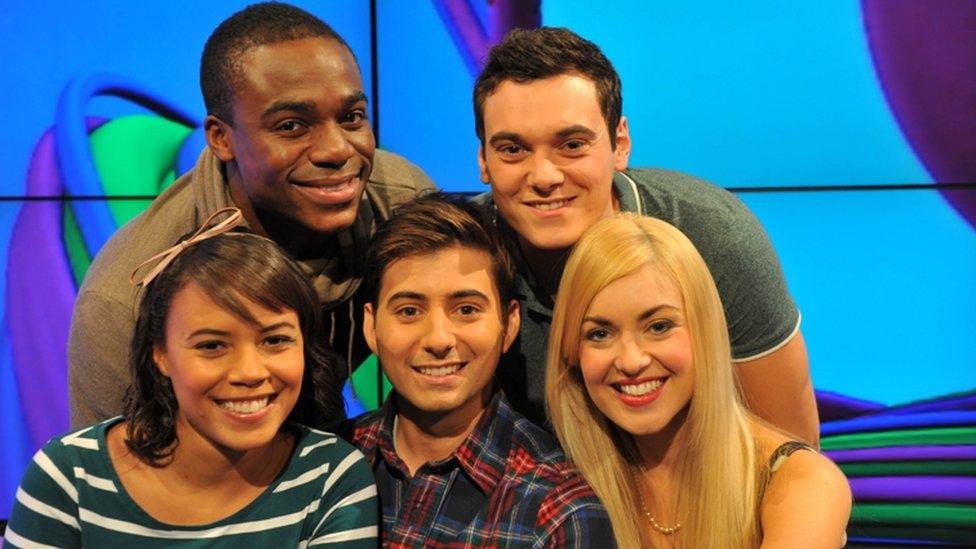
Presenters in 2012: Leah Gooding, Ore Oduba, Ricky Boleto, Joe Tidy and Hayley Cutts.
More recently, the show, which had moved to Salford Quays in Manchester a few years earlier, had to deal with a terror attack at the nearby Manchester Arena following an Ariana Grande concert.
An even more difficult task for the team, as this was an attack that had targeted an event that was filled with children.
"It was a very difficult one because we knew that kids were the ones that were going to be directly impacted by this," recalls Ricky.
"And standing outside the Manchester Arena to talk about that story live, knowing that so many children that we were then going to engage with had friends or family who were at the concert was probably one of the hardest stories for me to tell."
Leah adds: "What was key for us in that moment was to tell the story. Not to shy away from what had happened. Be selective in the pictures that we could show, but also who's helping.
"Who is there on the scene, making sure people are safe is also key and then that brilliant thing that Newsround does that says it's OK to feel scared by what you might be seeing here."
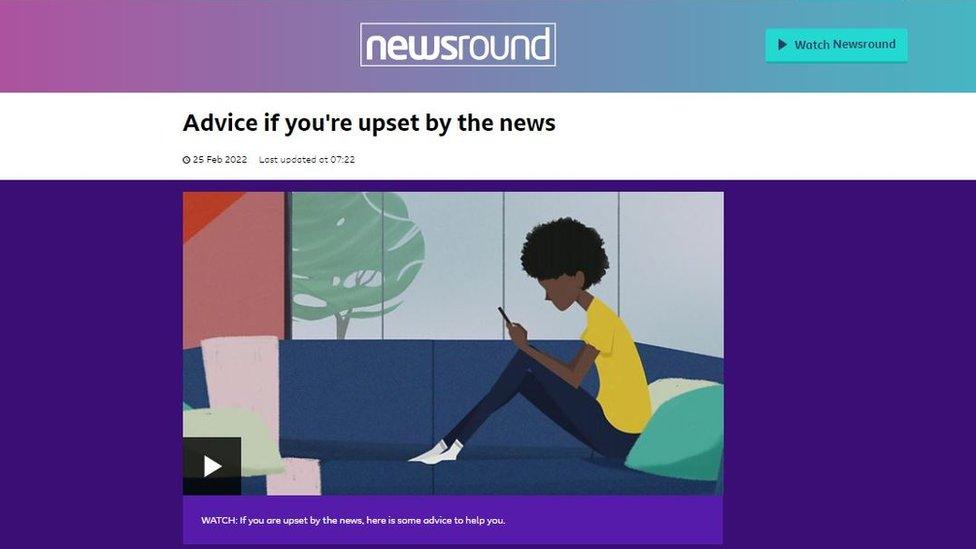
Newsround offers information on dealing with upsetting news
From the start Newsround has also been known for its lighter moments. Like all Newsround reporters, during my time on the programme between 1998 and 2008, I covered a huge range of stories from the serious to the surreal.
But the one that the audience seems to remember the most is my reporting of the Harry Potter phenomenon. I covered the books from my earliest days on Newsround, interviewing JK Rowling on many occasions, and being at the many midnight book launches.
And when the films came along, we did a piece on how children could apply for the main roles in the forthcoming movie.
When the young cast was unveiled to world's media on 23rd August 2000, Rupert Grint revealed that after seeing the report, he'd decided to send in an application and audition tape. The rest, as they say, is wizarding history.
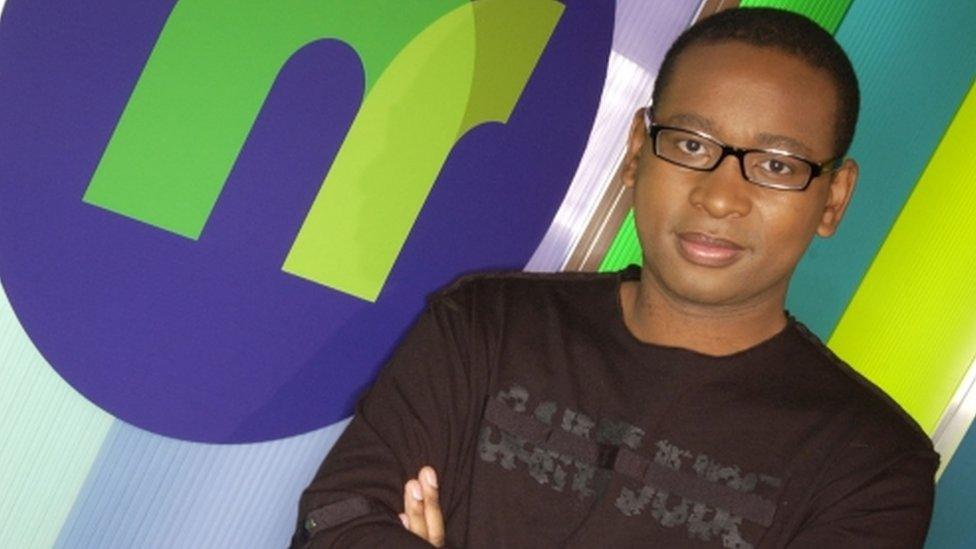
Lizo Mzimba, pictured in 2004
And finally! The programme has always, of course, always been known for its humorous end items.
"We always wanted to send their children away feeling happy," laughs John Craven.
"So we always ended on a funny story with, if possible, an awful pun attached to it. And we searched every week, we had somebody out looking for the right funny stories to end the show with."
It's a formula that has kept a six-week experiment in the schedules for 50 years.
And which could well keep it going for another 50 years to come.
Related topics
- Published19 April 2022
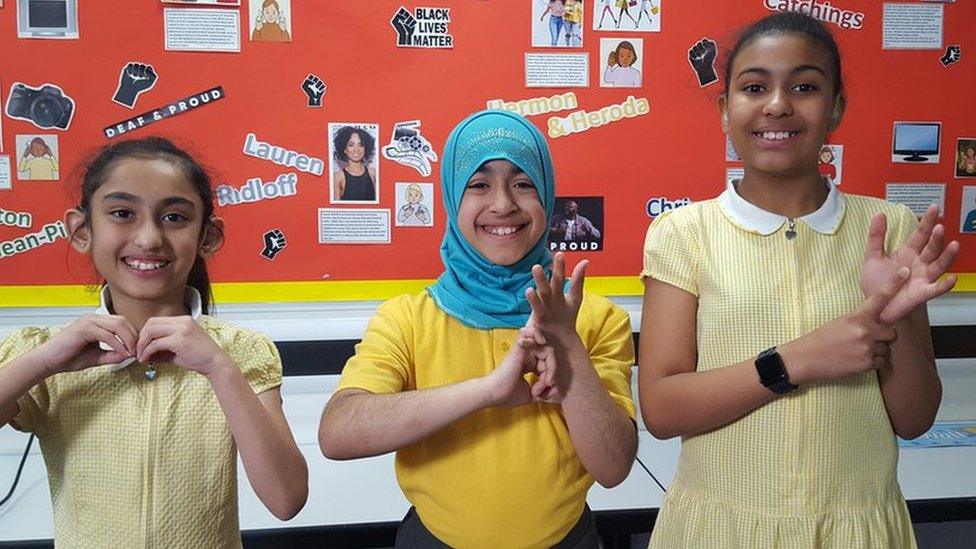
- Published10 June 2024
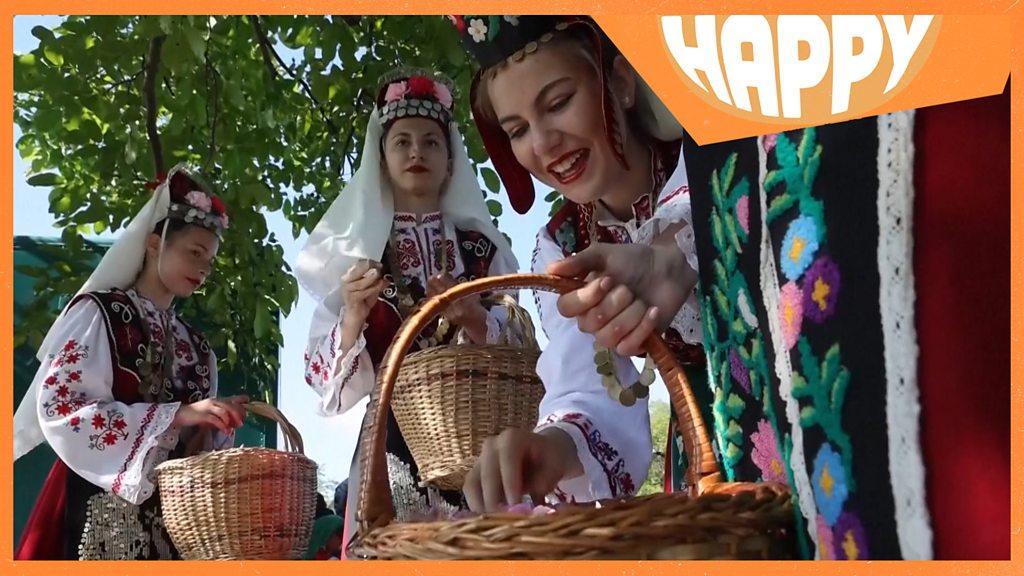
- Published29 August 2022
